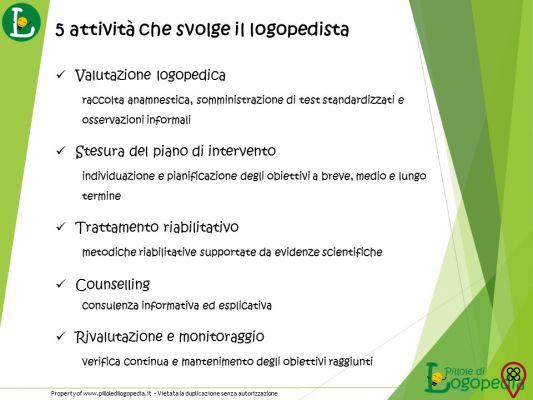How is the first psychotherapy session? What if you don't like the professional? You know, if you don't "beat the saint"? Do I have to say everything? Can he tell what I tell him? Is it a never-ending process? What if they think I'm crazy?
These are questions I often hear when asked what my profession is. Many of them are part of fantasies and stereotypes that inhabit the popular imagination about what psychotherapy is, about what a session would be like and what would happen in this process.
Some people resent the same or similar issues and end up pushing their problems without seeking support.
If you take a test and type the word “psychotherapy” into a search engine, several images of serious psychologists, in extremely formal attire, sitting upright and holding a clipboard, will appear on your screen. But I tell you that all this is just a stereotype that doesn't hold up in reality. Oh, I forgot to mention the couch.
Today, with the moment of pandemic and consequent social isolation, psychotherapy has migrated to virtual offices, using platforms we know well (WhatsApp, Skype) among more recent ones such as: Zoom, Microsoft Teams, Google Meet, among others. With this reality, we no longer need to look for a good psychologist in our city, whether we are residents of São Paulo, Alphaville, Rio de Janeiro, España, Fortaleza or anywhere else. With virtual connectivity, we can have access to mental health from anywhere in the world, with a characteristic that the pandemic has not been able to change: the interaction between psychologist and patient.

Psychology is a field covered by multiple knowledges. We have within psychology different schools of thought about what human beings are and how to take care of their suffering. In this way, each approach has its style of intervention and interaction with the patient. But which one to choose, William? There is no answer to this question, after all, approaches in psychology are just different conceptions with the same purpose: to take care of emotional suffering or resulting from it. I often cite as an example in my lectures that approaches in psychology are like Christian religions, despite having no relation to religious aspects. I mean that although religions have different interpretations, they all have the same goal. And which is the best? The one that makes the most sense to you!
I often find biased articles advocating the idea that such psychotherapy is better for treating anxiety, for example. This is a misconception or almost a myth.
In the approach I have chosen, psychoanalysis, the concept of the unconscious is fundamental. We understand in this school of thought that our past, traumas, diverse experiences and anxieties are registered since childhood in a place of our psyche, which is not accessible to our consciousness. For this reason, it is common, in a psychoanalytic psychotherapy session, to go back in the company of the psychologist to the past, because that is where the answers to the choices, feelings and behaviors of the present are found.
There are approaches that do not work with the notion of the unconscious, which only address the present. There are others that defend the total conscience of the human being, placing him as fully responsible for his actions. Anyway, there is no better.

From these differences, there will be those who identify with this or that approach. Identification with the therapeutic process, believing that it works and brings benefits, having a good identification with the psychologist are fundamental factors for this process to work. Imagine you being treated with a doctor you were referred to, but you can't trust a single word he says... it wouldn't be possible.
Therefore, in a first psychotherapy session, the main objective of the professional is to know the motivations that bring the patient to the office (physical or online). For the patient, the objective is to tell what has generated suffering, but also to know the professional's way of working. For this reason, if there is no identification, the best thing to do is to look for another professional, that is, the most important thing is to give yourself the chance to talk about what you have accumulated over the years.
In psychoanalysis, we work with a technique called free association. In this process, the patient will speak freely about whatever comes to his mind. And it is through these apparently loose words that the analyst will be able to understand and demonstrate to the patient what is being said by the unconscious. I usually say that the contents in a session appear in “small layers”, just as the archaeologist discovers objects with his numerous brushes and tools that have been buried for a long time. So talking about the past becomes less painful. This is done at the pace possible to each one.
In addition to the interaction with the patient, what does not change with the new forms of online psychotherapy is the issue of professional secrecy, that is, what is said between you and the professional (if he is a trained psychologist) will be governed by clear and strict rules of professional conduct established by the Federal and Regional Councils of Psychology, with the professional being responsible for drastic punishments in the event of a notification.

Despite the different schools of thought in psychology, there are also consensuses: one that I remember is the concept used by the anti-asylum struggle that, if we look at people closely, “nobody would be normal”. It is understood that the concept of normality is relative and very questionable, so who today can be considered normal? Who does what is most socially accepted? What if that same person, with these behaviors, moved to an eastern country? Would she be accepted and seen in the same way? These are questions to think about.
- 5 tips for those who have never had therapy
- Control your anxiety with psychotherapy
- Practice self-knowledge in your life journey
- Improve your mental health with 30 important tips
- Understand what Psychotherapy is
- psychotherapy techniques
In view of this, I tell you that, to feel anguish, it is enough to be alive and that if the pain bothers you, why not seek specialized help?
Diving into ourselves is fascinating, therefore, those who engage in this process will venture into the stories of themselves: some difficult, others happy, others indifferent, but all of them will make it possible to understand the development of subjectivity, personality and symptoms that , today, bother so much.
Hope to see you soon…

























